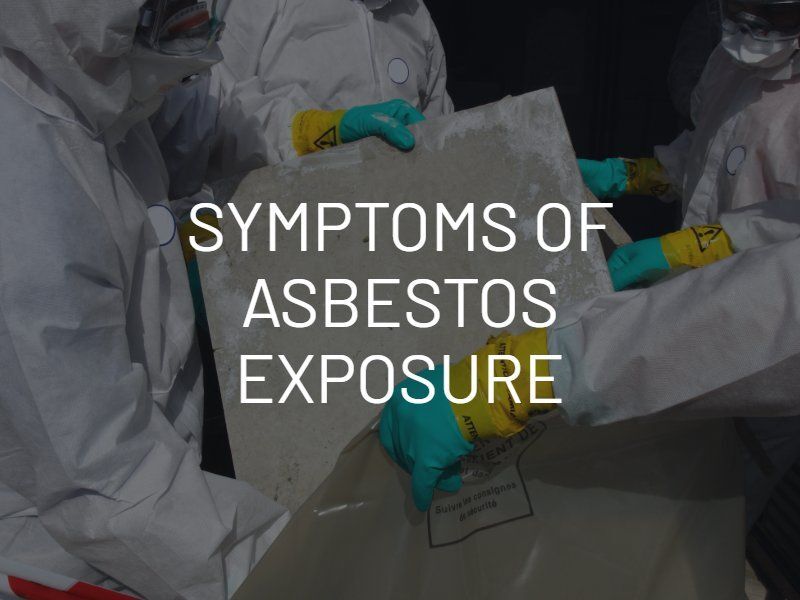An estimated 1.3 million people encounter significant amounts of asbestos in the workplace every day, according to the Occupational Safety and Health Administration (OSHA). Manufacturers stopped using asbestos in the 1970s, but many older materials contain these harmful minerals that cause serious illness and death to thousands of people in the United States. Companies used asbestos heavily for decades in the manufacture of cements, plastics, insulation, roofing, pipes, vehicle parts, floor tiles, paints, adhesives, and many other construction and household products.
There is no “safe” amount of asbestos exposure – even small amounts can cause major illnesses. Asbestos exposure can cause respiratory problems, coughing, shortness of breath, and certain cancers in long-term exposure. Scientists have linked asbestos to mesothelioma, lung cancer, colorectal cancer, and gastrointestinal cancers. It can also cause abnormalities in the lining of the chest, and asbestosis, or serious lung inflammation. If you’ve suffered any negative health effects related to asbestos exposure in the workplace, find out whether you’re eligible to receive compensation from your employer by speaking with a West Virginia mesothelioma lawyer.
What are the Signs of Asbestos Exposure?
Certain industries use products with asbestos more than others, including construction, mining, shipbuilding, heating and cooling, auto repair, roofing, and the manufacturing of products containing asbestos. Janitors in buildings that contain asbestos may also face major exposure. The longer someone is around asbestos, the higher the chances are of experiencing related health problems. If you notice any of these common symptoms, consider whether they could stem from asbestos in the workplace:
- Difficulty breathing or swallowing
- Tightness of the chest
- Chest pain
- Dry cough that worsens over time
- Coughing up blood
- Swelling of the face or neck
- Loss of appetite
- Weight loss
- Fatigue
- Anemia
- Cancers of the lungs
- Mesothelioma
- Lung damage
Some workers don’t realize they’ve sustained an injury or illness from asbestos for decades after the initial exposure. The deadline for filing a claim in West Virginia – two years from the date of injury – does not start until the discovery of the injury. If you only recently discovered an asbestos-related illness or cancer from exposure that occurred many years ago, you likely still have grounds to file a claim against your employer or another party. Speak with a West Virginia personal injury attorney right away.
Employee Rights in the Workplace
The law obligates employers to keep workers reasonably safe from health hazards and injury risks. This includes the risk of illness from asbestos exposure. If you work in a job that deals with asbestos, or if you’re curious about your risk of exposure, talk to your employer about what the company is doing to minimize this risk. OSHA has asbestos safety and health rules in place that employers must follow. Employers must provide personal asbestos exposure monitoring, protective equipment, properly ventilated spaces, warning signs, and medical monitoring if extensive exposure has occurred.
If an employer fails to prepare its workers and protect them from asbestos exposure, resulting in related employee injury, the victim(s) may be able to sue the employer for negligence. An employer is guilty of negligence if a reasonable and prudent party would have done something different to prevent the asbestos-related injury. You may also have a case against the manufacturer of the product containing asbestos, the owner of the property where you performed the work, or contractors/subcontractors involved in the job.
After an asbestos injury, you may find that workers’ compensation is the only remedy for your damages. Seek counsel from an attorney to find out if your claim has merit as a personal injury lawsuit rather than a workers’ comp claim. Consider a lawsuit if you suffered catastrophic or permanent injuries, or a loved one died from asbestos exposure.
